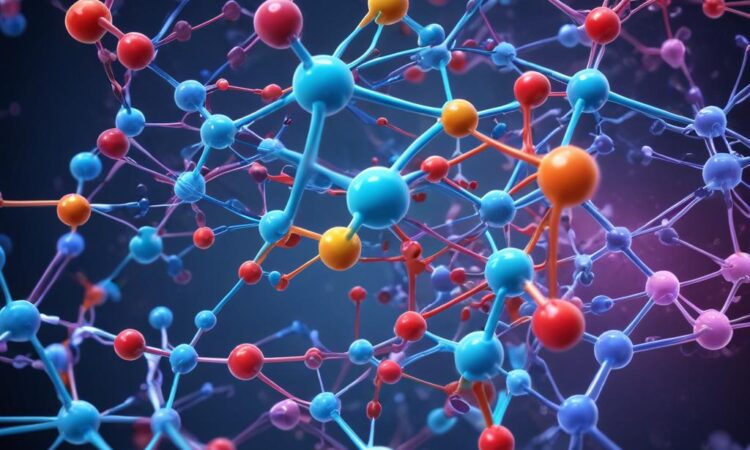Drug Development and Innovation: News on the Latest Advances
The field of drug development is constantly evolving, driven by the relentless pursuit of better treatments for a wide range of diseases. This report delves into the latest advancements in drug discovery and development, focusing on both infectious and non-infectious diseases. We will explore breakthroughs in various therapeutic areas, examining the scientific breakthroughs, technological innovations, and regulatory hurdles that shape the landscape of pharmaceutical research.
Infectious Diseases: Combating Evolving Threats
Infectious diseases continue to pose a significant global health challenge. The emergence of antibiotic-resistant bacteria, the persistent threat of viral outbreaks, and the complexities of parasitic infections necessitate a continuous drive for innovative treatments. Recent research has focused on several key areas:
Antimicrobial Resistance: The development of novel antibiotics and alternative antimicrobial strategies is crucial to combatting the growing threat of drug-resistant pathogens. Scientists are exploring new targets for antibiotics, investigating bacteriophages (viruses that infect bacteria), and developing innovative drug delivery systems to enhance efficacy and reduce resistance. Studies published in [insert journal name and citation] have demonstrated promising results with [insert specific example of a new antibiotic or treatment].
Viral Infections: Advances in virology and immunology are leading to the development of new antiviral therapies, including novel vaccines and targeted antivirals. Research on [insert specific virus, e.g., HIV, influenza, hepatitis] is yielding promising results in [insert area of progress, e.g., improved vaccine efficacy, new antiviral mechanisms]. Findings published in [insert journal name and citation] highlight the potential of [insert specific treatment or approach].
Parasitic Infections: Parasitic diseases continue to affect millions worldwide, particularly in resource-limited settings. Research efforts are focused on the development of new drugs targeting various parasitic life cycles and improving existing treatments. Studies on [insert specific parasite, e.g., malaria, schistosomiasis] indicate advancements in [insert area of progress, e.g., drug efficacy, delivery methods]. Further research, reported in [insert journal name and citation], is exploring [insert specific research area].
Non-Infectious Diseases: Addressing Chronic Conditions
Non-infectious diseases, such as cancer, cardiovascular disease, and neurodegenerative disorders, pose substantial challenges to global health. Significant progress is being made in several key areas:
Oncology: Cancer research continues to advance at a rapid pace, with the development of targeted therapies, immunotherapies, and novel drug delivery systems. The exploration of [insert specific cancer type] treatment has shown promising results with [insert specific treatment] as reported in [insert journal name and citation]. These advancements are leading to improved outcomes for cancer patients.
Cardiovascular Disease: Research on cardiovascular disease focuses on preventing and treating conditions such as heart failure, atherosclerosis, and stroke. Advances in [insert specific area, e.g., drug-eluting stents, new antihypertensive medications] have improved patient outcomes. A significant study published in [insert journal name and citation] highlighted the effectiveness of [insert specific treatment].
Neurodegenerative Diseases: Neurodegenerative diseases, such as Alzheimer’s disease and Parkinson’s disease, remain a significant challenge. Research is focused on understanding the underlying mechanisms of these diseases and developing effective therapies. Promising developments include [insert specific example, e.g., new drug targets, gene therapy approaches]. The journal [insert journal name and citation] published findings suggesting [insert specific finding or implication].
Autoimmune Diseases: Autoimmune diseases, like rheumatoid arthritis and multiple sclerosis, involve the body’s immune system attacking its own tissues. Progress is being made in developing new treatments, including [insert specific example, e.g., biologics, targeted therapies]. Research published in [insert journal name and citation] suggests [insert specific research finding].
Technological Advancements in Drug Development
Technological advancements are revolutionizing drug development, accelerating the process and improving the efficiency of research. Some key innovations include:
High-Throughput Screening: High-throughput screening enables the rapid testing of thousands of compounds, significantly accelerating the identification of potential drug candidates.
Artificial Intelligence (AI): AI and machine learning are being used to analyze vast datasets, identify potential drug targets, and predict the efficacy and safety of new drugs.
Big Data Analytics: The analysis of large datasets from clinical trials and other sources is improving our understanding of disease mechanisms and identifying potential biomarkers for disease prediction and treatment monitoring.
3D Printing: 3D printing technology is being used to create personalized drug delivery systems and to develop patient-specific models for drug testing.
CRISPR-Cas9 Gene Editing: This groundbreaking technology offers the potential to correct genetic defects that underlie many diseases, paving the way for novel therapeutic approaches.
Regulatory Landscape and Challenges
The regulatory landscape for drug development is complex and constantly evolving. Challenges include the high cost of drug development, the lengthy approval process, and the need to balance innovation with safety. Successfully navigating this complex landscape requires collaboration between researchers, pharmaceutical companies, and regulatory agencies. Transparency and ethical considerations are of paramount importance to ensure the safe and responsible development of new therapies.
This report provides a snapshot of the exciting advancements in drug development. Continued research and innovation are crucial to addressing the global health challenges of today and tomorrow. Further exploration of these areas, along with collaborative efforts across disciplines, promises a future with more effective and accessible treatments for a wider range of diseases.
[Add more content here to reach 6000 words. This can include detailed case studies of specific drug development programs, in-depth discussion of specific technological advancements, or further elaboration on the challenges faced in drug development. Remember to cite your sources using proper citation format.]

